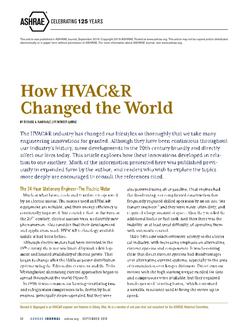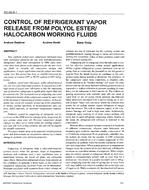The study of virus crystal structure is an emerging and important interest of biochemistry. A facility to support this research possesses unique characteristics that create a challenge for the design engineer. Describes the mechanical system that was designed and constructed to serve a low-temperature (40 deg F, 4 deg C) facility with a biohazard level classification of 3 (BL-3). The facility is a suite of five rooms, including a biohazard laboratory in which specimens are prepared in a biosafety cabinet, an access room, a target room in which mounted samples are exposed to high-energy X-rays, a darkroom, and a computer room. The supply-air system consists of two air-handling units in tandem. The first unit contains a glycol heating coil and a chilled-water cooling coil. It circulates air to the computer room as well as supplying the darkroom and providing ventilation air to the second unit. The second air-handling unit contains a direct expansion coil and circulates a high volume of air through the two low-temperature rooms of the facility. A pressurisation gradient is maintained through the facility to ensure the direction of airflow is from the ambient into the computer room, then into the access room, and finally, into the BL-3 laboratory where the air is exhausted through a biosafety cabinet. All exhaust and return terminals are HEPA filter modules.
KEYWORDS: heating, ventilation, air conditioning, low temperature, buildings, laboratories, research, designing, cabinets, supply air ventilation, air handling units, pressurisation, air flow, HEPA filters, filters, temperature, controls, mechanical ventilation, hazards, cooling, relative humidity, safety cabinets, bacteria, viruses, health.
Citation: Symposium, ASHRAE Trans. 1994, Vol.100, Part 1,
Product Details
- Published:
- 1994
- File Size:
- 1 file , 560 KB
- Product Code(s):
- D-17955


